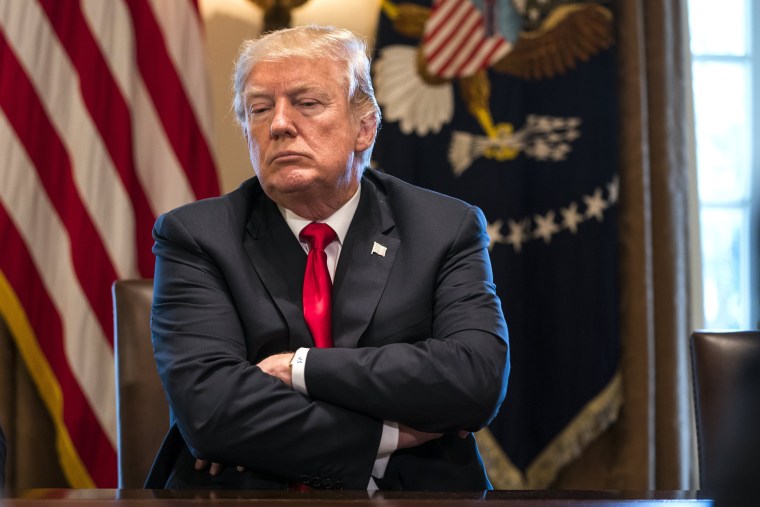Donald Trump was a nontraditional presidential candidate, and not just because major American political parties don't usually nominate inexperienced gameshow hosts to the nation's highest office. What also helped Trump set apart was his willingness to ignore several key elements of his party's orthodoxy -- either because he didn't know what Republicans thought about key issues, or because he didn't care.
The result was an idiosyncratic platform in which the nominee of a far-right GOP spoke openly about his opposition to entitlement cuts, despite his party's support for them. Trump also voiced support for higher taxes on the wealthy, despite his party's opposition to them. The same Republican candidate vowed to get tough on Wall Street, combat corruption, bring health care coverage to all Americans, and keep Goldman Sachs insiders at arm's length -- all positions that put him at odds with the contemporary GOP.
The sincerity and depth of Trump's positions were open questions. It was nevertheless obvious that in some key areas, he at least claimed he wouldn't be doctrinaire.
But perhaps Trump's most striking break with Republican orthodoxy came on foreign policy. Donald Trump seemed to genuinely believe in a non-interventionist vision for the U.S. role in the world. He repeatedly mocked the war in Iraq, made clear he had no use for a Bush/Cheney-style approach to international affairs, and dismissed those who disagreed as useless fools.
After Inauguration Day, it didn't take long for Trump to betray the broader vision he sold to the electorate, abandoning practically every position that set him apart from traditional GOP leaders, but on foreign policy, the perfidy took longer.
As of yesterday afternoon, however, the duplicitous campaign reached its endpoint. I'm reminded of something The Atlantic's Conor Friedersdorf wrote a few weeks ago in response to rumors that John Bolton would soon replace H.R. McMaster as the White House national security advisor:
The problem isn't just that Bolton is singularly ill-suited for the role -- he also represents a set of views diametrically opposed to the policies that helped the president secure his job. Trump won the GOP primaries and the White House in part by taking the position that the Iraq War was a dumb waste of American lives and resources.
Bolton, meanwhile, not only celebrated the disastrous war during the Bush era, he also continues to insist it was a wise decision, all evidence to the contrary notwithstanding.
Which only helps underscore why Bolton, an outlandish conspiracy theorist with an abusive temperament, is a truly ridiculous choice for this powerful White House post: his bizarre, ultra-hawk worldview is largely the opposite of what Candidate Trump promised to pursue before the election.
Indeed, if you're a voter who helped elect Trump because of his non-interventionist platform, I have some spectacularly bad news for you. Slate's Jim Newell once described Bolton as "a madman whose only wish is to bomb Iran into oblivion" -- which isn't altogether fair because Bolton also wants to bomb North Korea into oblivion.
This isn't complicated: non-interventionist presidents do not hire warmongers to guide the White House on matters of national security.
The Donald Trump voters saw in 2016 has been slowly disappearing for a year and a half. The John Bolton announcement means that iteration of Trump is truly gone.
